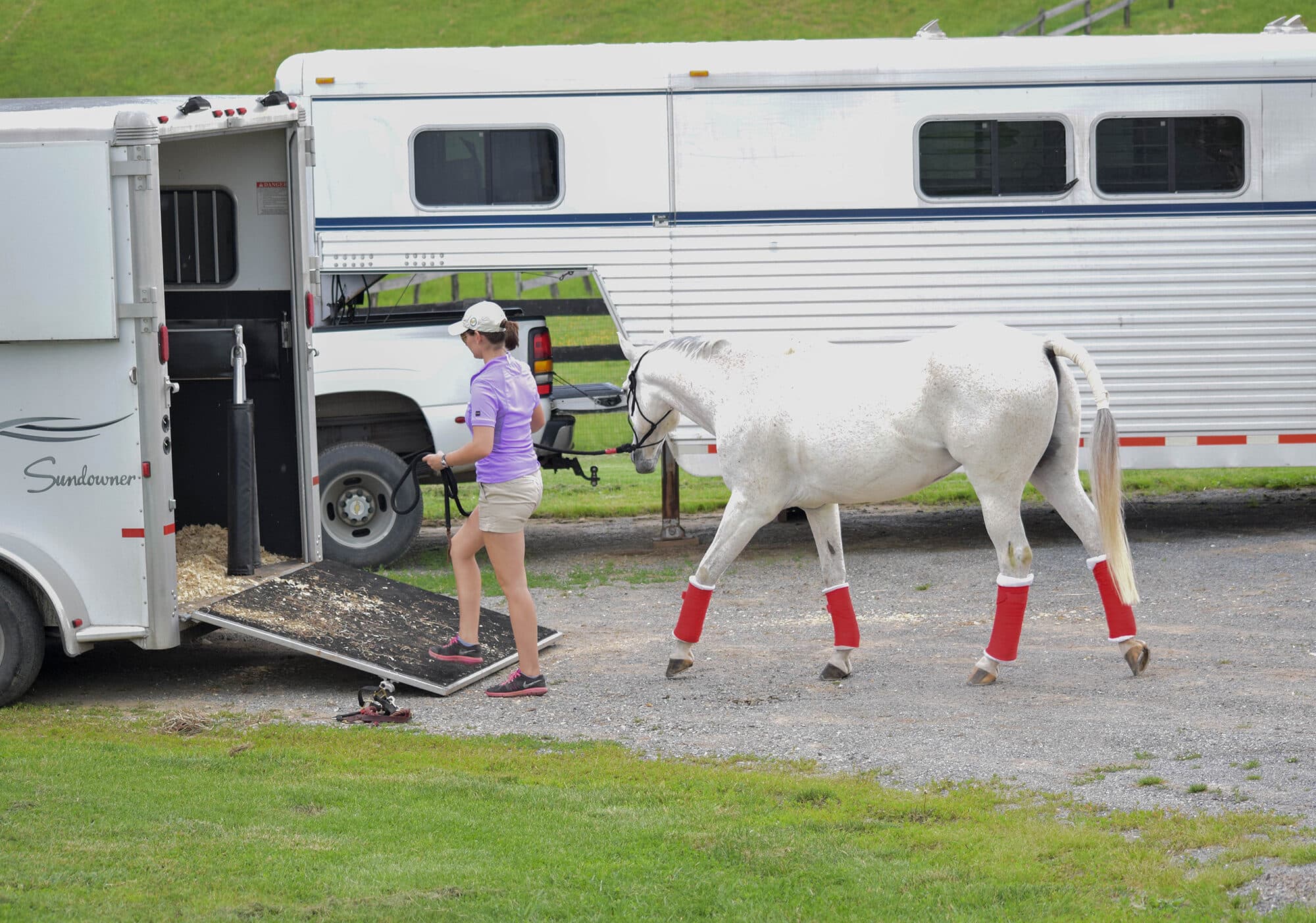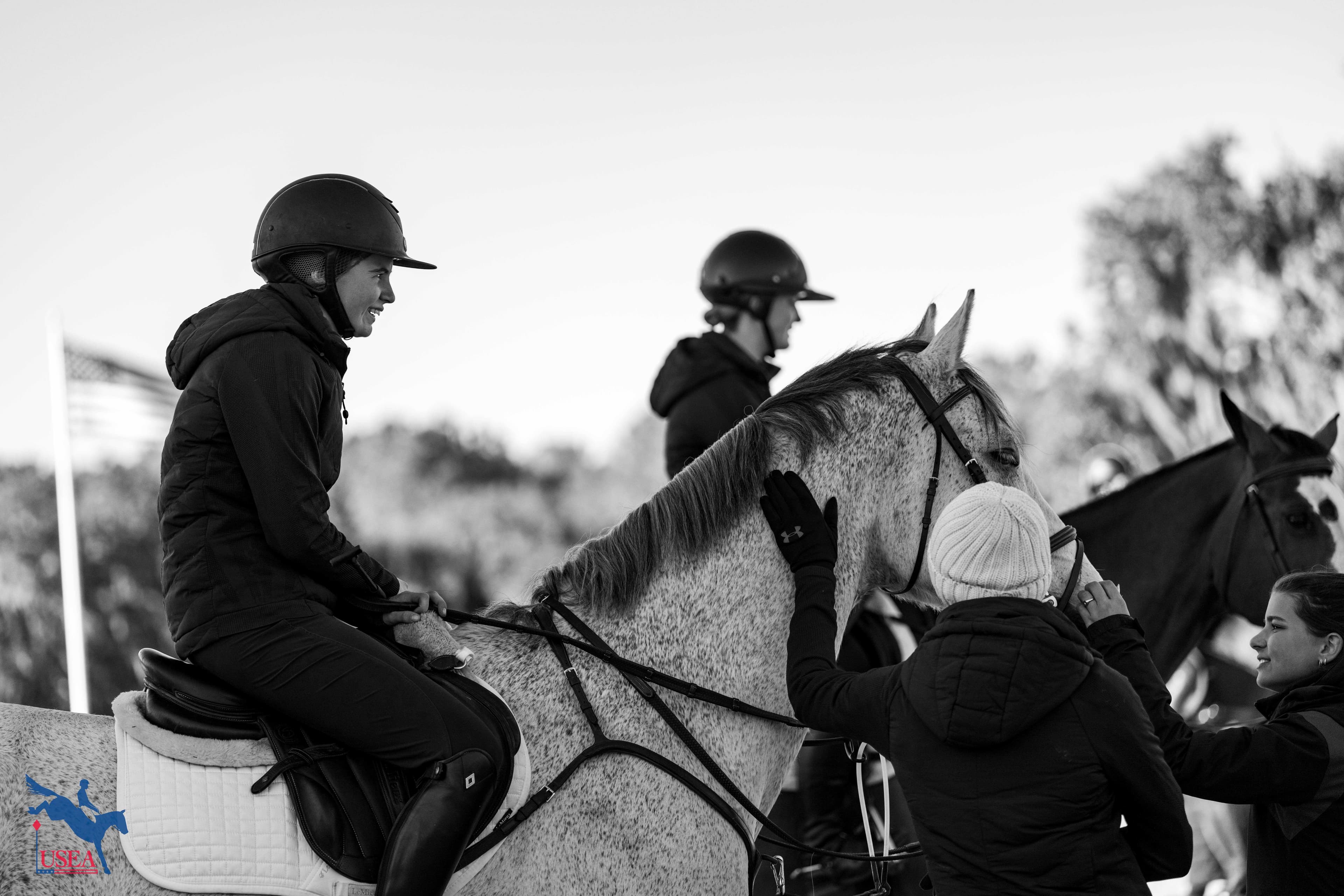Top Trailer and Travel Tips for AEC

As competitors from all over the country flock to the Tryon International Equestrian Center (TIEC) for the 2016 Nutrena USEA American Eventing Championships presented by Land Rover (AEC) next week, Dr. David Marlin shares his advice to make horse transport safer and less stressful for your horse.
Please also note that all competitors will be required to provide a negative coggins within 12 months, Health Certificate within 10 days of arrival, and proof of vaccination in compliance of the USEF rules. These documents will be checked upon arrival and before entrance to the property.
Millions of horses worldwide are transported millions of miles each year. Almost certainly 99.99% of these transport events occur without incident. However, transporting horses badly can lead to subsequent problems with loading, adverse effects on performance, illness and even death. Its easy to forget that transport is not natural for a horse, that horses may get stressed without even showing it and that transport can make horses ill. Just because your horse usually travels well and does not get ill is not a reason to avoid taking as many steps as you can to ensure things continue in this way! One bout of “shipping-fever” is likely to change your approach to transport, but better to change before that happens.
Transport affects different parts of the horses’ body and different horses in different ways. Whilst a horse being transported by road uses up more energy than walking, provided the vehicle is driven sympathetically, most studies have shown that there is minimal, if any, damage to muscles. However, the implication of this is that transport is tiring for horses. Human athletes do not travel long distances and compete immediately they arrive and for good reason, as the effect of travel on performance is well known.
There has been much speculation as to the direction or way in which horses prefer to travel in trailers or horseboxes. Scientific studies have now shown that there is no universally preferred direction. Some horses are happy facing backwards, some are happier facing at 45°, some 45° forwards, and some 45° backwards. The only way to really know what your horse prefers is to try different directions or even loose travelling if you have a lorry with removal partitions. Horses lose weight during road or air transport at the rate of around 2-3kg per hour. Most of this weight loss is water. This is why it is important that horses have water available to drink whilst they are on the move. When you stop to offer them water they may be too interested in why you have stopped to drink properly. Similarly, if you can feed haylage or soaked hay this helps keep your horse hydrated. Dehydration may be much worse on a very hot and dry day, especially if the horse is a nervous traveller as well. Dehydration may increase the risk of colic and also cause or worsen respiratory disease.
It is true that some horses do get more stressed by transport than others. Stress can lead to impairment of immune function and increase susceptibility to infections, but most studies of horses being transported have not shown immune function to be affected, although this could still occur in some individual animals. The body system that is often most badly affected by transport if the respiratory system. Fortunately, in the UK the distances travelled are fairly short and so respiratory problems associated with transport such as “shipping-fever” (a form of pneumonia due to bacterial infection) are relatively rare. The lungs are affected by transport for a number of reasons. Firstly, air quality may be poor due to little or no ventilation. This may also be made worse by the use of dusty hay and straw with the horse being forced to breathe this for a prolonged period. If the horse urinates then there may also be accumulation of ammonia which can irritate the lungs. Dehydration can also slow the clearance of dust from the lungs leading to inflammation. In addition, the elevated head position also prevents proper clearance of debris and mucus from the lungs and allows bacteria to multiply. Therefore, the risk of shipping fever is increased by long periods of transport (>10h), dehydration, dusty feed and bedding and poor ventilation. There is also a very greatly increased risk if the horse has obvious respiratory disease before travelling. For example, in Japan, over a 5 year period for road journeys in excess of 25 hours, 12% of transported horses developed some degree of “shipping-fever”.
There is not universal agreement between all the different scientific studies of horse transport that have been published. The variation in responses of individual horses to transport is most likely to due to a combination of different factors, but could include age, breed, sex, temperament, fitness, presence of pre-existing disease, previous transport experience, external and internal environmental conditions, transport vehicle design and feeding and watering regimen.
Do
• Take your horses temperature before loading and setting off on a journey – if it is raised above normal for your horse then DON’T travel. Your horse is likely to be much worse after travel!
• Practice loading your horse on days when you don’t have to get anywhere at a fixed time
• Ensure your horses has water and hay available during journeys of over a few hours
• Ensure good ventilation
• Use low dust forage or soaked hay and low dust bedding
• Drive sympathetically – the more bumps and corners, the more stressed and tired your horse will be at the other end
• Stop at least every 4 hours to check your horse and unload and walk it if possible
• Have your horse examined by your vet and a check of the respiratory system several weeks before any very long journeys (8h or more) or flights
• Avoid driving in busy traffic or in hot weather
Don’t
• Drive 5 hours, expect your horse to compete immediately it arrives and put in its’ best performance.
• Be tempted to leave immediately after a hard competition and drive more than a few hours home. Allow your horse an overnight recovery before travelling.
• Stick to dogma concerning the best way to transport horses. Find what works for your horse.
• Over clothe horses during transport. They are better to travel a little cool than too warm.
• Use laxatives. Transport causes disturbance to gastro-intestinal tract of the horse through “stress” and laxatives can compound this.
• Starve horses during transport
• Withhold water during or after transport














